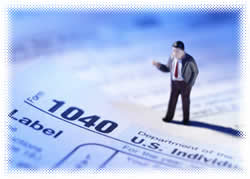 GNN will begin a weekly series to help you with your taxes — especially beneficial to folks like me who haven’t done them yet! Today, Julian Block, an expert on tax issues related to freelance artists, writers and photographers, will answer some common questions about how many deductions we can legally claim on our income taxes in the U.S. this year…
GNN will begin a weekly series to help you with your taxes — especially beneficial to folks like me who haven’t done them yet! Today, Julian Block, an expert on tax issues related to freelance artists, writers and photographers, will answer some common questions about how many deductions we can legally claim on our income taxes in the U.S. this year…
Question 1: I came in from Chicago to New York City to attend a writers’ conference. I’m pretty sure that I’m entitled to claim some deductions, but what sorts of expenses can I deduct, and can I deduct them totally?
Answer: You get to deduct 100 percent of what you spend for the attendance fee, tapes of sessions, books on writing and the like, plus travel between your home and New York, and expenditures for hotels. There’s a limitation, though, for meals not covered by the attendance fee, including both what you eat en route and food consumed while you’re in New York: Deduct only 50 percent of those expenditures.
Question 2: I was accompanied on the trip by my spouse, who isn’t a writer and didn’t attend the conference. Any chance that any of my spouse’s expenses qualify as deductible?
Answer: There’s no deduction whatever for the portion of the outlays attributable to your spouse’s travel, meals and lodging — with a limited exception, one that will allow relatively few freelancers to salvage deductions for a mate’s travel expenses. To qualify for the exception, these three requirements must be met: (1) the spouse (or dependent, or any other individual) accompanying you on business travel is a bona fide employee of the outfit that pays for the trip (in this case, your freelance business); (2) the spouse undertakes the travel for a bona fide business reason; and (3) the spouse is otherwise entitled to deduct the expenses.
Special tip: Take heart. Some often-overlooked tax relief remains available for lodging costs even when your spouse, significant squeeze or someone else tags along only for fun. You are entitled to a deduction for lodging based on the single-rate cost of similar accommodations for you — not half the double rate you actually paid for the two of you.
For example, Judy Peterson, a photographer, goes by car to New York for a business conference. She is accompanied by her husband, Frank, who is retired. They stay at a Manhattan hotel where rooms go for $200 for a double and $180 for a single room. Besides a deduction for the total cost of driving to and from New York (Judy obviously incurs the same driving expenses whether Frank accompanies her or not), she should claim a per-day deduction for their hotel room of the entire single rate of $180, rather than half the double rate, or $100. To help safeguard her deduction in case the IRS questions it, she should remember to have the hotel bill note the single rate, or be sure to get hold of a rate sheet.
Some of Frank’s meals might qualify as deductible business meals. An example: At the conference, Judy dines with a book publisher and the publisher’s spouse. Because of the presence of the publisher’s spouse, Frank attends on a business basis.
Question 3: Can I deduct money spent for magazines purchased at a newsstand for pre-query research? These are not magazines I’m now writing for but magazines I hope to write for. And if I can, where on Form 1040 do I list those deductions?
Answer: The law allows you to deduct business-related publications, and these magazines are in that category. Like your other writing expenses, you claim them on Schedule C or on Schedule CZ, the shorter, one-page form that can be used by a business owner when expenses are below $5,000, a loss is not shown and certain other requirements are met.
Question 4: I am an architect and moonlight as a freelance writer. I went to a get-together with some of my fellow writers. There was no speaker; it was more of a social event. While I see it as networking with my professional colleagues, and most of the talk was about work-related issues, writing is only a part-time activity for me. Can I take a business-expense deduction for the cost of getting there? How about my cash contribution to the refreshments for the group?
Answer: It is immaterial that you are a part-time freelancer. Your writing endeavors do not have to be full-time for this kind of event to qualify. You are entitled to claim the entire cost of round-trip travel between your home and the party’s site. For travel by bus, train or taxi, just keep track of your fares and claim them as business expenses; for auto travel, you can claim actual expenses or a standard mileage allowance.
The standard rate is 48.5 cents per mile for 2007, up from 44.5 cents per mile for 2006. For 2005, it was 48.5 cents per mile for the final four months and 40.5 cents per mile for the first eight months. The IRS authorized a special increase to 48.5 from 40.5 to reflect the surge in gasoline prices caused by Hurricane Katrina, which battered communities along the Gulf Coast in Aug. of 2005. Whether you claim actual expenses or use the mileage allowance, remember to deduct parking fees and bridge, tunnel and turnpike tolls that you pay while you are on business, too.
As for noshing outlays, they fall into the category of meals and entertainment, and are subject to a cap. They are only 50 percent deductible.
Julian Block, an attorney in Larchmont, N.Y., has been cited as “a leading tax professional" (New York Times) and "an accomplished writer on taxes" (Wall Street Journal). This article is excerpted from the book, Tax Tips For Small Businesses: Savvy Ways For Writers, Photographers, Artists And Other Freelancers To Trim Taxes To The Legal Minimum. For more of his articles or to order books, visit www.julianblocktaxexpert.com. Copyright 2007 Julian Block. All rights reserved.



















